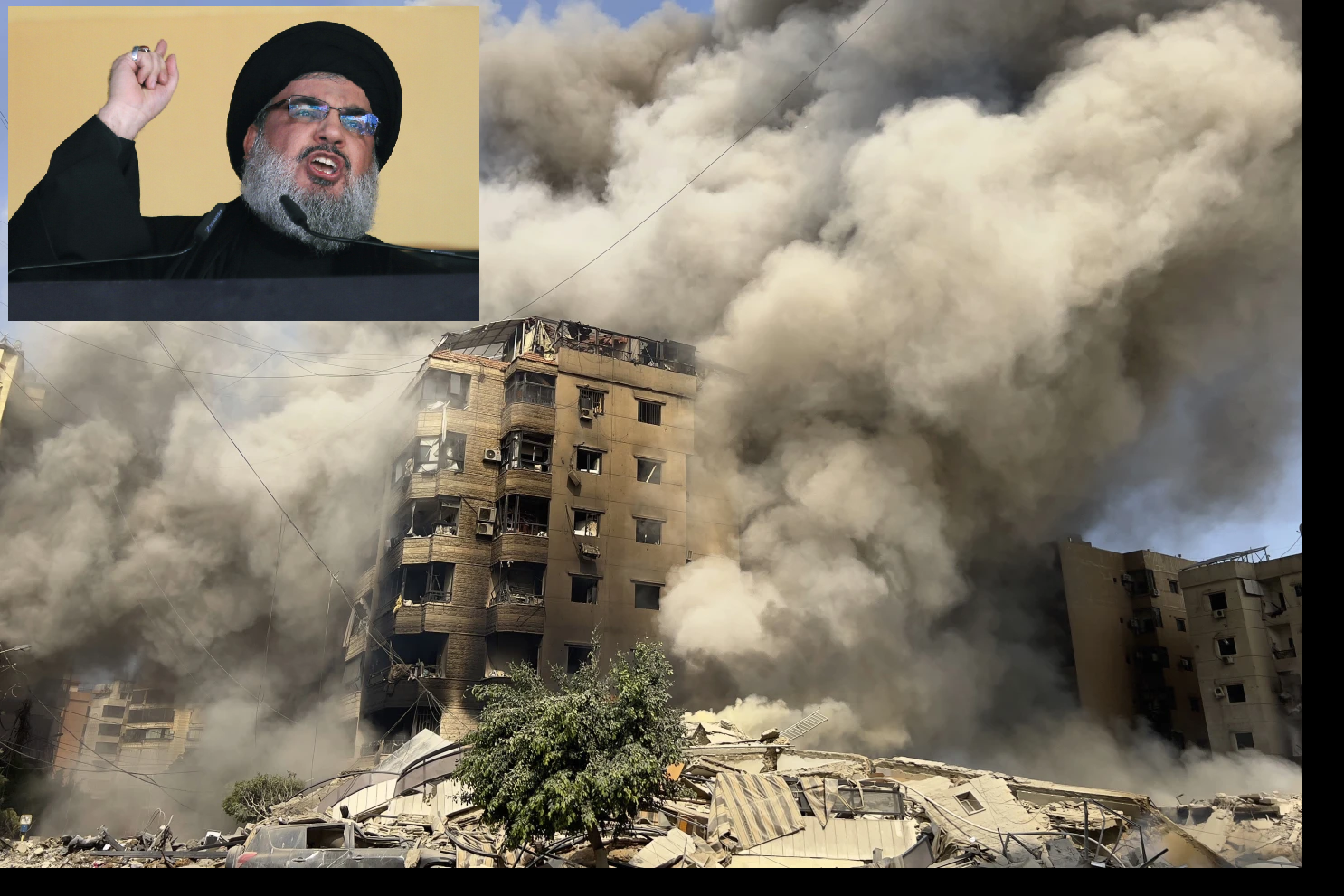Hassan Nasrallah, longtime leader of Lebanon’s Hezbollah, is killed by his archenemy Israel
- Home
- Detail

BEIRUT (AP) — Hezbollah leader Hassan Nasrallah, who transformed the Lebanese militant group into a potent paramilitary and political force in the Middle East was killed in an Israeli airstrike, the group said. He was 64.
BEIRUT (AP) — Hezbollah leader Hassan Nasrallah, who transformed the Lebanese militant group into a potent paramilitary and political force in the Middle East was killed in an Israeli airstrike, the group said. He was 64.
Nasrallah, who spearheaded Hezbollah’s war against Israel in 2006 and got the group heavily involved in neighboring Syria’s brutal conflict, was killed in a massive Israeli airstrike on the Beirut southern suburb of Haret Hreik Friday evening that knocked down several multi-story apartment buildings.
“His eminence Sayyed Hassan Nasrallah, Hezbollah’s secretary-general had joined his fellow great martyrs whom he had led for 30 years from one victory to another,” Hezbollah said in a statement. It added that Nasrallah “fell as a martyr on the road to Jerusalem.” Nasrallah’s death comes amid a dizzying escalation in the nearly yearlong conflict between Israel and Hezbollah, since the war in Gaza started, and more than three decades after he took leadership of the Iranian-backed militant group following the killing of his predecessor by an Israeli missile in 1992. Five years later, the United States designated Hezbollah a terrorist organization. Hezbollah has been firing rockets, missiles and drones into northern Israel in solidarity with Palestinians in Gaza and Hamas, an allied Iran-backed militant group. Israel has responded with increasingly heavy airstrikes and the targeted killing of Hezbollah commanders while threatening a wider operation. This week has been the deadliest in Lebanon since the bruising 2006 monthlong war between Israel and Hezbollah.
Thousands of pagers and walkie-talkies used mainly by Hezbollah members exploded in different parts of Lebanon, killing 39 people and wounding nearly 3,000, many of them civilians. Lebanon blamed Israel, but Israel did not confirm or deny responsibility. Nasrallah had promised to retaliate. Then, Israeli strikes on Lebanon killed more than 700 people in five days, including at least 150 women and children, according to Lebanese authorities.
Nasrallah had said the barrages would continue — and Israelis wouldn’t be able to return to their homes in the north — until Israel’s campaign in Gaza ended.
Seen by his supporters as a charismatic and shrewd strategist, Nasrallah had reshaped Hezbollah into an archenemy of Israel, cementing alliances with the ayatollahs in Tehran and Palestinian militant groups such as Hamas.
Idolized by his Lebanese Shiite followers and respected by millions of others across the Arab and Islamic world, Nasrallah held the title of sayyid, an honorific meant to signify the Shiite cleric’s lineage dating back to the Prophet Muhammad, the founder of Islam.
Nasrallah’s image appears on billboards in the group’s strongholds across Lebanon — especially in southern Beirut, Hezbollah’s headquarters — and on trinkets in souvenir shops not only in Lebanon but also in countries such as Syria and Iraq.
Despite the power he wielded, Nasrallah lived largely in hiding in the last years of his life for fear of an Israeli assassination, giving speeches to followers via a satellite link. A fiery orator viewed as an extremist in the U.S. and much of the West, as well as in some oil-rich Gulf Arab countries, he was also considered a pragmatist, compared to the firebrand militants who dominated Hezbollah after its founding in 1982, during Lebanon’s civil war. Under Nasrallah, Hezbollah fought Israel to a stalemate during the 34-day war in 2006 and was credited with leading the war of attrition that led to the withdrawal of Israeli troops from south Lebanon in 2000, after an 18-year occupation. Nasrallah’s eldest son, Hadi, was killed in 1997, while fighting against Israeli forces.
When Syria’s civil war erupted in 2011, Hezbollah fighters rushed in, siding with Syrian President Bashar Assad’s forces — even though Hezbollah’s popularity took a dive as the Arab world ostracized Assad.
Along with Damascus’ key allies Russia and Iran, Hezbollah played a major role in helping Assad stay in power and eventually retake territory lost in the early years of the conflict. Hezbollah saw its popularity among Arabs surge again when it came to the defense of Hamas, opening a front with Israeli forces along the Israel-Lebanese border barely a day after the Hamas-led attack on southern Israel on Oct. 7, 2023.
The Hamas-led attack killed around 1,200 people in Israel and took about 250 hostage, triggering one of the most destructive military campaigns in modern history. Israel’s subsequent aerial bombardment and ground invasion of the Gaza Strip killed tens of thousands of Palestinians.
In June 2024, Nasrallah warned Israel that Hezbollah had new weapons and capabilities. Nasrallah also claimed that Hezbollah now has a far higher number of fighters than the 100,000 figure he gave three year earlier.